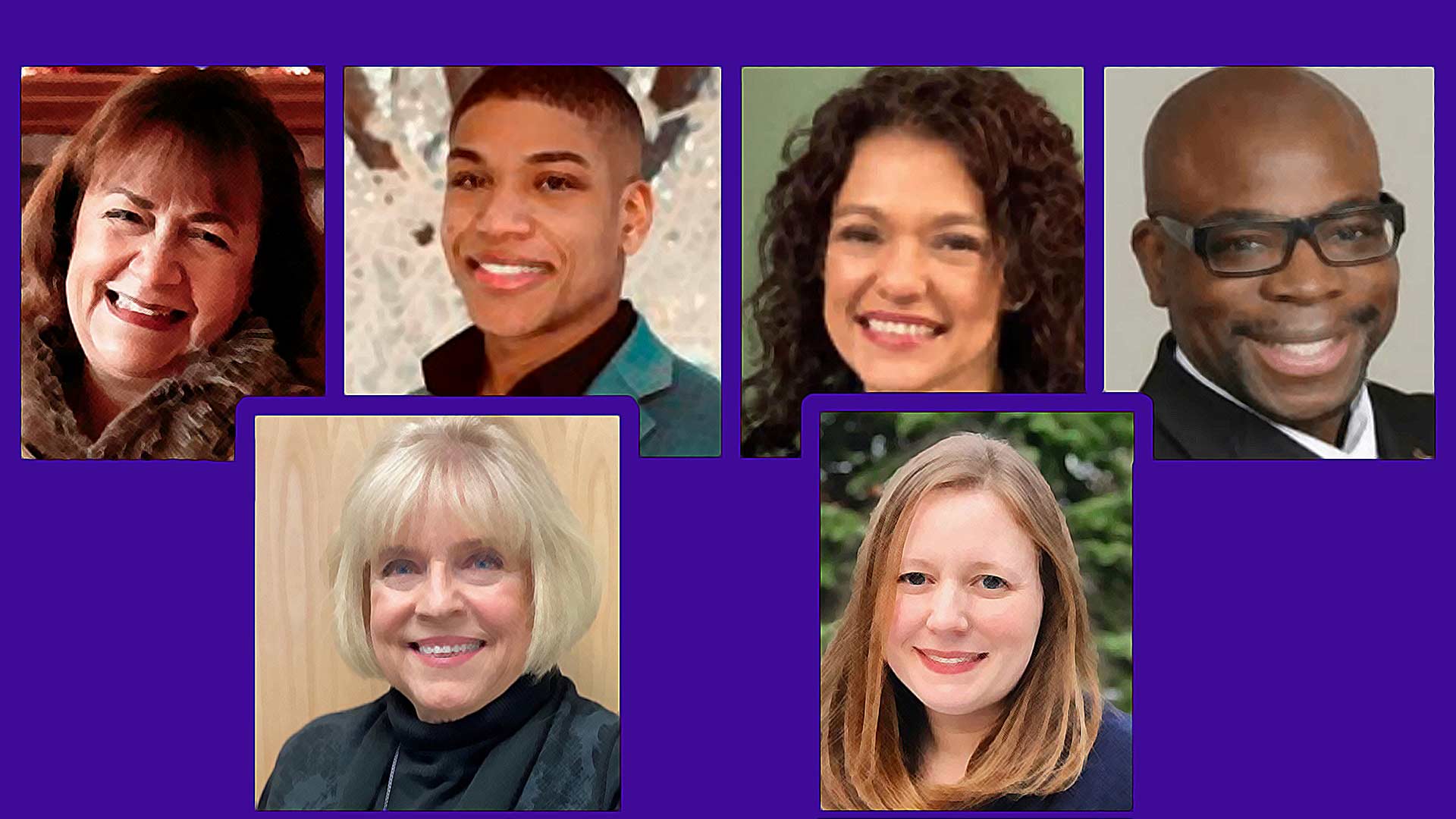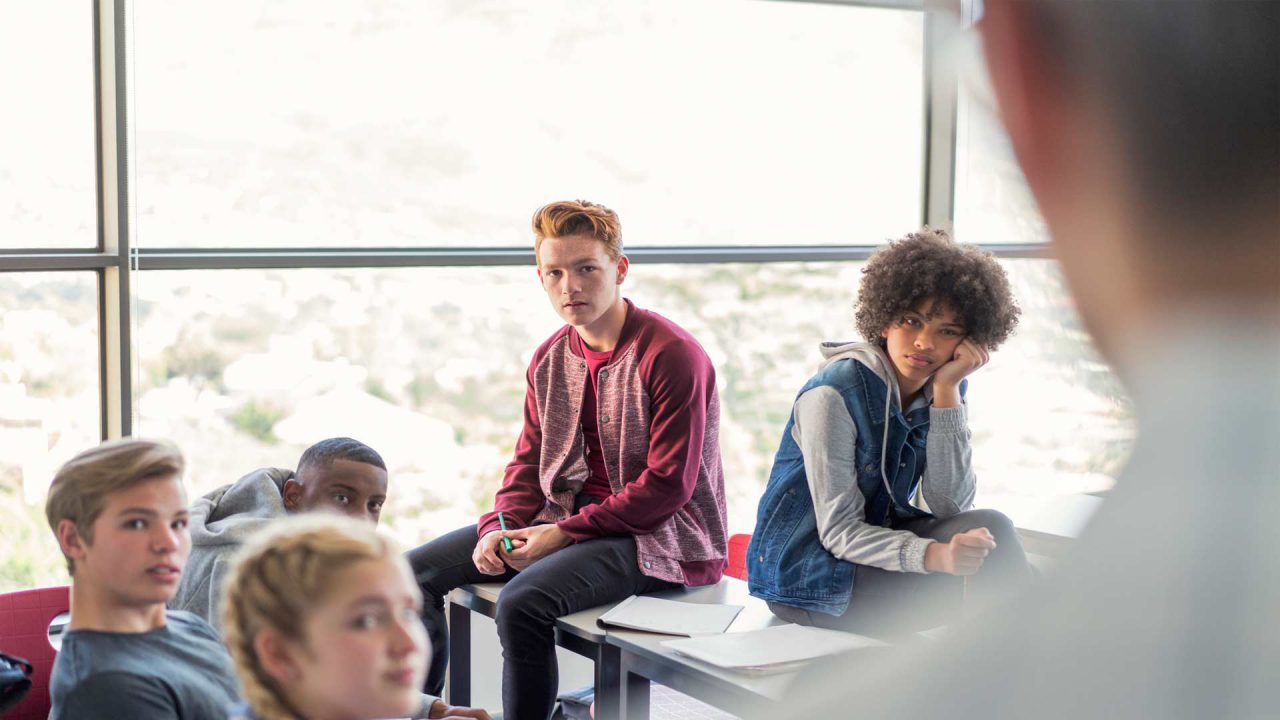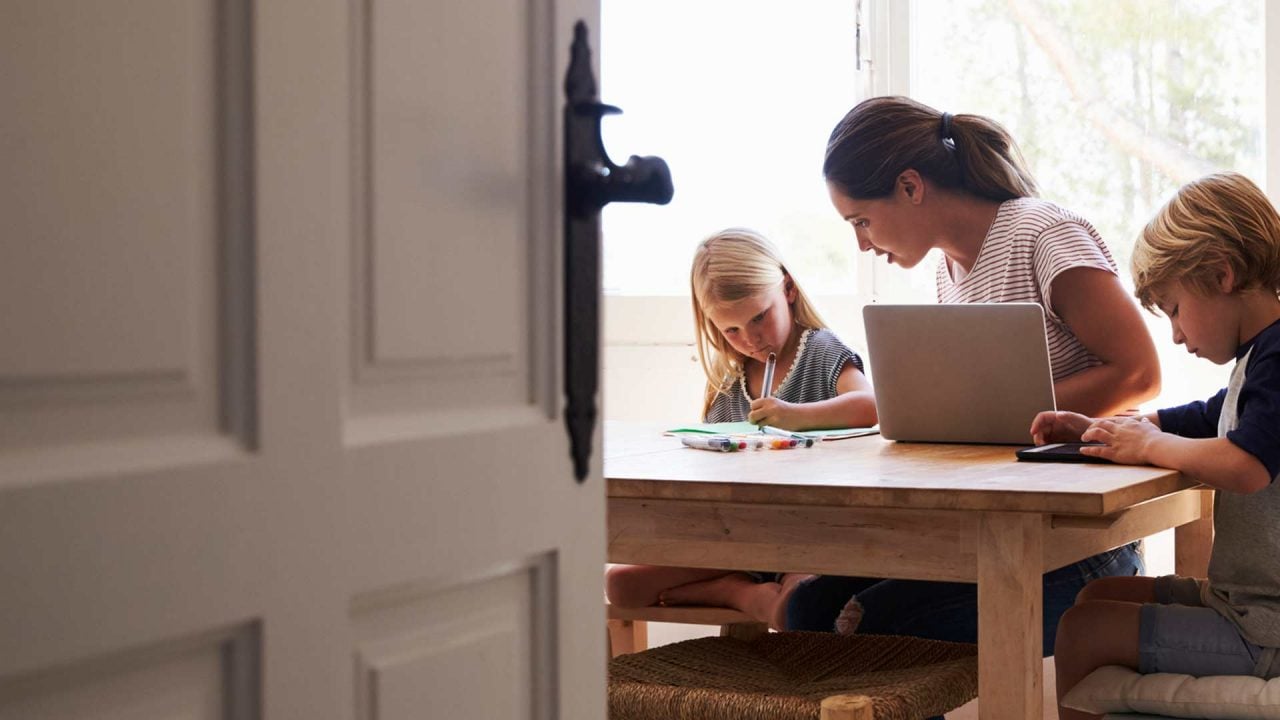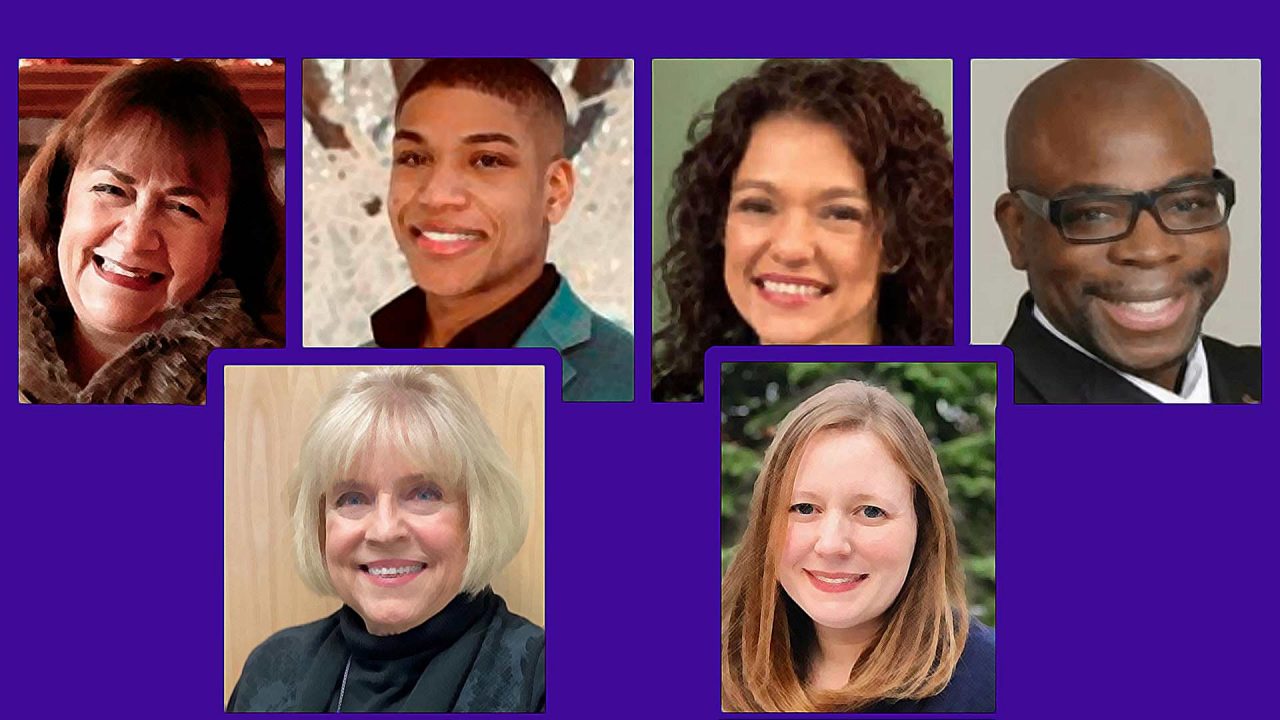
Anchorage education is in crisis. Test scores are dismal, many students are struggling with school closures and virtual classrooms, and radical social ideologies are creeping into the curriculum. The Watchman sent a survey to each candidate running for school board to see how they would address these issues. Seven candidates responded, nine did not. The following declined to participate: Marilyn Stewart (Seat B), Kelly Lessens (Seat B), Pat Higgins (Seat E), Edgar Blatchford (Seat E), Rachel Blakeslee (Seat E), Dan Loring (Seat F), Dora Wilson (Seat F), Vakalis Elisa (Seat G), Carl Jacobs (Seat G).
What skills or experiences qualify you to serve on the school board?

JUDY ELEDGE (Seat B): As a retired teacher and principal in both ASD and rural Alaska I bring with me a very diverse background. After retirement I spent 15 years working as a coach and mentor in low performing schools in rural Alaska, often sleeping on a classroom floor to do so. I didn’t do that because I was not passionate about children. I bring the most diverse educational background of any candidate running or currently on the board. Anchorage School District, students, parents and the community need that experience. Most of all I care deeply about the success of all students, and ensuring they have the skills necessary for a productive life.
MARK ANTHONY COX (Seat B): Parent, ASD graduate (Class of ’12), UAA graduate (major in finance), President HOA, children’s ministry teacher, self-help author, U.S. Army veteran, CEO of Family Charity of Alaska.
ALISHA HILDE (Seat E): I am the only school board member with elementary age children, and I provide a strong voice for families. I am always focused on what’s best for kids. I am an attorney, former middle school band director, and have a Master in Public Policy for law and economics. I make my decisions using cost-benefit analysis, reviewing research, and by going out into the community to listen. I’ve served as vice-president and governance chair of our board. I was recently accepted into a nation-wide program that requires a high level of accountability for whether our board is meeting our student learning goals.
NIAL WILLIAMS (Seat E): I have been a political activist and organizer for many years. I am blessed to be a Christian man, therefore, Christ will guide my endeavors in everything I do.
SAMI GRAHAM (Seat E): Education is my wheelhouse. With 35 years in education as a teacher, counselor and principal, a Master in Education Leadership, a Master of Science, and a heart for education and Anchorage, I feel I need to use my experience to help students, parents and teachers of the ASD.
MARCUS SANDERS: (Seat F): I graduated from East High School. I am an associate pastor of the Greater Friendship Baptist Church and a former employee of the Anchorage School District, working as a special education teacher’s assistant. I worked as a Safety and Security Specialist for two years at Wendler Middle School. For five years I coached basketball, track and field and volleyball, serving several schools across Anchorage. I formally served on the Fairview Community Council Executive Board, Shiloh Community Housing Executive Board, and was a member of the Rogers Park Community Council. I was appointed by Mayor Ethan Berkowitz to the John S. Parks Naming Panel. I served as the NAACP Executive Board second chair and vice president of SHRM Anchorage Chapter Wayland University. I was a member of the executive board of Anchorage Community Police Relations Taskforce and formally on the Bridge Builders of Anchorage executive board. I also served as a first responder chaplain for the Anchorage Police and Anchorage Fire Department. I was appointed by Gov. Dunleavy to serve on the Suicide Prevention Council. I have a Bachelor of Christian Ministry with a minor in human services from Wayland Baptist University and I’m currently enrolled in the Joint Master of Divinity & MBA at Wayland Baptist University.
KIMBERLY PAULSON (Seat F): My primary qualification is that I am a parent of two ASD graduates and currently have a sophomore enrolled in the district. Before having children, I managed a physician’s office. Once my youngest started pre-K, I went to college and earned my bachelor’s degree. I have volunteered in my children’s schools and at times have been the parent who teachers ask for help. I’ve also worked as a teachers’ aide with special needs students.
ALASKA WATCHMAN DIRECT TO YOUR INBOX
Are there two or three issues that especially motivated you to run for office?
JUDY ELEDGE (Seat B): The lack of transparency and involvement of parents and the community with decisions affecting students. The special interest groups that are trying to force their agendas on our schools. Whether it be gender identity or 1619 History or the new anti-racist policy before the board, we must stop this intrusion into the life of our children. The complete shutdown of in-person learning. Research does not support the complete closure of schools.
MARK ANTHONY COX (Seat B): Yes: lack of contemporary perspective, lack of cultural representation, and Alaska ranking 50th in the nation in education.
ALISHA HILDE (Seat E): My priorities continue to be improving student achievement, recruiting and retaining highly skilled teachers, and long-term budget planning. I advocated for multi-year bonding because of the large cost savings and efficiency gains. Because of that, we were able to use those resources to focus on getting schools safely re-opened. I support improving our teacher retirement system, high-quality professional development and competitive pay. I’ve pushed for aggressive growth in K-3 reading instruction over the next five years. And as a nation-wide school board coach, I’m opening our board to more public accountability on meeting those goals.
NIAL WILLIAMS (Seat E): I will stand up for all Anchorites and never be beholden to special interest groups. I will stand up for those who cannot wear the mask or choose not to vaccinate. I will balance the budget as is statutorily required. A budget of nearly a billion dollars that spends 86% on administrative costs and salaries is just not getting the job done. Throwing more money at the problem is not the solution but spending money in effective areas will be. Math, science and technology classes will be the basis of a quality education. This does not mean eliminating programs of the arts, but a strong emphasis on curriculum that produces winning students.
SAMI GRAHAM (Seat E): Raise Student Achievement, spend taxpayer money wisely and keep politics out of the classroom.
MARCUS SANDERS (Seat F): My wife and I have children and I want Anchorage schools to be the best they can be. Our public schools are the foundation of Alaska’s greatness. We must have well educated citizens. We need to change ASD priorities and improve the way we educate. With current math proficiency at 40.3 % and English language arts proficiency at only 41.7%, we must return to proven successful reading, math and civics methods of education.
KIMBERLY PAULSON (Seat F): The way the School Board handled the return to school this year and the effect it had on my son academically and emotionally opened my eyes to how much control the schools have over our children’s lives – this includes what curriculum or ideology is being promoted. My son genuinely asked, on two separate occasions, if he could quit school because it no longer has any value. For many students, the result of the school board’s decision has resulted in lower academic performance and increased student depression, as well as decreased intervention in cases of child abuse.

What are your concerns when it comes to student achievement in Anchorage?
JUDY ELEDGE (Seat B): Low academic achievement of students. According to ASD website, in 2019 almost 60% of 4th graders could not read at their grade level. In fact, in 1981 ASD was second in the U.S. for high academic achievement. Now we are near the bottom. Serious discussions need to happen on why we are where we are today.
MARK ANTHONY COX (Seat B): Preparing students for both adulthood and higher education. All students are not best suited for college but instead vocational training or entrepreneurial endeavors. For all students we need to instill basic life skills such as financial planning, taxes and home economics. Students lack of engagement comes from the curriculum not feeding their inherent talents.
ALISHA HILDE (Seat E): I am concerned about our low level of academic proficiency. Many children in ASD do very well academically, but the majority struggle to meet expected levels of academic achievement. I’m a strong advocate for improving K-3 literacy because those skills are key to success in school. I’ve worked with the board to have on-going progress monitoring. We must know if students are on track before we get to those benchmarks, and we must make sure our budget is aligned to meet those goals.
NIAL WILLIAMS (Seat E): $13,350 per pupil, per year spent by the ASD. Yet our students woefully underperform their counterparts nationally and internationally. Focus on raising the bar for all students and work to achieve dominance in areas of math, science and technology are necessary for a stronger republic.
SAMI GRAHAM (Seat E): Our 40% proficiency is unacceptable. Schools should have opened sooner with protocols and options for distance learning. We need to raise expectations and focus our efforts on student achievement. Teachers’ hands are hogtied by rigid curriculum, political agendas and low standards. School choice, smaller class sizes, professional development, healthy sports, arts and extracurricular activities are all part of improving student achievement.
MARCUS SANDERS (Seat F): Before the pandemic, ASD English language arts and math proficiencies were at 41%. After almost a year without in person learning, we must focus our efforts, recover from a loss of learning and begin to improve those proficiencies.
KIMBERLY PAULSON (Seat F): During the 2018/2019 school year over 50% of our students tested below proficient in English language arts and math. Only 40% of our fourth graders can read at grade level.

Curriculum development is a major area of controversy in school districts around the nation, including here in Alaska. How would you facilitate parental involvement in this area?
JUDY ELEDGE (Seat B): I was a curriculum director for many years and will bring that experience to ASD. In the past parents were integral to curriculum committees, but in the last 20 years I have seen less and less of parents offered this opportunity – most certainly those who might object or have a difference of opinion from the district. This is something a majority of the school board can direct the superintendent to do.
MARK ANTHONY COX (Seat B): We need to increase our availability to parents outside of just PTA and school board meetings. Thankfully, technology allows us to increase our lines of communication. It is necessary to have board members who are not only savvy but also committed to remaining transparent, available and flexible to parents’ needs. Something as simple as having a public calendar so parents can schedule time with board members would get us traction in this area. Parents know what reaches their children, and we need their input as much as possible.
ALISHA HILDE (Seat E): I think the opportunities for virtual participation will significantly improve parent involvement. I’m a mom of three elementary-age kids. Like most parents, I don’t have a lot of extra evenings to drive across town and listen to presentations. Being able to participate remotely will help more parents provide input.
NIAL WILLIAMS (Seat E): Schools should focus on students but excluding parents from curriculum changes can lead to child abuse. Look at the sexual education, Planned Parenthood slaughter clinic training and transgender training. We need to oppose these for what they are – destructive to the child, the family and our nation.
SAMI GRAHAM (Seat E): Curriculum committees must have parent representation from many different parent groups, not just a hand-selected few. It is important that curriculum is vetted, reviewed, appropriate and scientifically proven to teach targeted skills.
MARCUS SANDERS (Seat F): We must maintain an open and honest line of communication to keep parents and students informed on policies decisions and budgets. I will commit to transparency and open government by attending PTAs, community councils and providing a monthly newsletter to update parents. Most importantly, I will listen!
KIMBERLY PAULSON (Seat F): Parents need to be informed of proposed curriculum and ideologies being considered in our schools. This can be done through email and letters. Parents should have a voice in the process.

Do you support a parent’s right to withdraw their child from any activity or class which the parent believes to be harmful?
JUDY ELEDGE (Seat B): Absolutely. It is a right every parent must have.
MARK ANTHONY COX (Seat B): Yes. Public school should be an extension to reinforce the values of a nourishing home. Therefore, if what we are doing in school is not practiced at home, parents have the right to protect their children from what they believe will harm their children. The Anchorage School District should reassess activities or classes that parents deem harmful.
ALISHA HILDE (Seat E): Yes.
NIAL WILLIAMS (Seat E): Yes. As stated previously, parents have ultimate sovereignty over the choices of their children. Anything that diverges from this is child abuse.
SAMI GRAHAM (Seat E): Absolutely. Parents are the primary educators.
MARCUS SANDERS (Seat F): Yes, with the exception of English language, arts and math. We must have those measurements for each student so educators can design and focus curriculum to bring students up to national standards.
KIMBERLY PAULSON (Seat F): Yes.

Would you support the use of school district resources to refer students for abortion and/or to distribute contraception to students?
JUDY ELEDGE (Seat B): No. This is a personal matter that should be only decided by a parent and their child.
MARK ANTHONY COX (Seat B): No. The family has a right to not only their child’s education but also the choices made that affect their bodies. This is evident in routine hospital visits. Our resources are better served by enhancing educational options to students rather than impeding on family related matters.
ALISHA HILDE (Seat E): I do not support referrals for abortion. I have mixed views on distributing contraception. Our nurses care for children with a wide variety of needs, and I could see a situation where it would be appropriate. I don’t support broad distribution of contraception. Education on human reproduction and the risks of STDs is important.
NIAL WILLIAMS (Seat E): No. I will shut down the Planned Parenthood murder slaughter clinics. I will also seek to have the medical licenses of these domestic terrorists revoked so that they can never pill-peddle again. This is premeditated murder, nothing less. As a Christian, supporting life is paramount.
SAMI GRAHAM (Seat E): No. Life begins at conception.
MARCUS SANDERS: (Seat F): No. This is the parents responsibly.
KIMBERLY PAULSON (Seat F): No

Do you support the Anchorage School District policy of allowing males to compete on female sports teams (and vice versa) if they personally identify as a member of the opposite sex?
JUDY ELDGE (Seat B): As a woman of the 60s I fought hard for women’s rights and this is part of an effort to destroy women’s rights. I am also a Christian, and I strongly believe this is also an effort to destroy Christian beliefs. If you do away with Adam and Eve, Christians would not have much point. I have often donated to Alliance for Defending Freedom for their efforts on behalf of women in this matter.
MARK ANTHONY COX (Seat B): On the basis of identifying as a gender outside of their birth, I do not support the Anchorage School District’s policy of allowing these students to participate in traditionally all male/female teams. Increasing intramural sports choices for students during this time would be the wisest pivot the Anchorage School District could make to give all male/female sports teams the opportunity to compete in an atmosphere comparable to the college level they hope to achieve.
ALISHA HILDE (Seat E): Eligibility is regulated by ASAA (Alaska School Activities Association). I support the objectives of Title IX in providing girls an equal opportunity to compete in sports. My focus is on academics including improving reading and math skills and making sure graduates are ready for the next step in life – be it college, career, or vocational training.
NIAL WILLIAMS (Seat E): Use the bathroom and locker room of the genitalia of your birth. What’s next? Age fluidity? Stop the madness. You also must play in the sport of the genitalia of your birth. No exceptions, no discussions.
SAMI GRAHAM (Seat E): No. When I was principal at a private school, we had to offer an alternate bathroom for visiting students who were on campus while competing so that we were in compliance with municipality rules, but boys was for boys and girls for girls.
MARCUS SANDERS (Seat F): No. This is determined by actual physical sex of the student.
KIMBERLY PAULSON (Seat F): No.

Do you support the Anchorage School District’s policy of allowing male students who identify as female (and vice versa) to use the opposite sex’s bathrooms and locker rooms?
JUDY ELEDGE (Seat B): I strongly oppose this and was part of the team that fought the Prop 1 Initiative in Anchorage several years ago.
MARK ANTHONY COX (Seat B): On the basis of identifying as a gender outside of their birth, I do not support the Anchorage School District’s policy of allowing these students to use the opposite sex’s bathroom and locker rooms due to the increased chance for sexual violence crimes on school grounds. Dedicating single-stall bathroom(s) for students who identify as gender fluid would be the wisest pivot the school district could make.
ALISHA HILDE (Seat E): I support our current practice of empowering principals to best meet the academic and health needs of all their students. My criticism in the past has been the school board’s lack of focus on academics. I am focused on improving reading and math skills. Sixty percent of our students are below our proficiency standard. This is a serious issue, and if the board fails to meet our learning objectives, the consequences to our community will last for years.
NIAL WILLIAMS (Seat E): Again, see above, children must use the bathroom and locker room of the genitalia of your birth. Also, just to be clear, no adults in the children’s bathrooms or locker rooms.
SAMI GRAHAM (Seat E): No.
MARCUS SANDERS (Seat F): No. This is determined by the actual physical sex of the student.
KIMBERLY PAULSON (Seat F): No.

The past year saw a massive shift towards homeschooling, partially due to COVID but also for other reasons. Do you see this as a positive development, and would you support expanding homeschool options for ASD students?
JUDY ELEDGE (Seat B): In some ways it has shown parents how little their children were learning in school. It is my hope that it will motivate parents to demand change. I support parental choice and that includes more homeschool options.
MARK ANTHONY COX (Seat B): It is positive that parents are homeschooling their children. Studies from Harvard as well as University of Durham show that children, especially those under age 10, learn best at home and outperform their counterparts. The school board should set a vision of hybrid learning to assuage parents of educational and health concerns while maintaining student enrollment. This will require expanding our transportation service in delivering meals to our Title 1 students as well as transporting children who have offset class times due to the hybrid learning model. I propose we bring students who thrive in at-home environments to school for socialization and vocational training. Students who struggle can come to school for additional instruction, mentorship, socialization and vocational training.
ALISHA HILDE (Seat E): Yes. I support expanding homeschool and blended learning opportunities. There are several thousand Anchorage students enrolled in non-ASD homeschool programs. I strongly support providing a way for those families to enroll in ASD’s excellent homeschool programs. The definition of “homeschool” includes not only parent-led instruction, but also virtual education, small group instruction and blended learning. There are a lot of exciting options available to kids. In general, we should be looking for innovative ways to deliver high-quality education within our budget.
NIAL WILLIAMS (Seat E): If families want their children to Zoom into school, that is their choice. However, I will force all teachers back to work. Reopen all schools to full time, in-person classes immediately. Those teachers who do not report will be fired. Students who see in-person learning as necessary should not be denied that educational right. Further, refund the money from 2020-2021 – when schools were closed – unto the custodial parent immediately.
SAMI GRAHAM (Seat E): Homeschooling is a great way to educate for some families. ASD needs to support this growth in any way possible.
MARCUS SANDERS: (Seat F): Yes, ASD should continue efforts to provide different school-choice programs. The School Choice Research organization reviewed over 55 studies and found that proficiency in math and reading improve with choices. It also found that attendance, parental and student satisfaction and proficiency improved. The studies found that public schools and other options respond well to the pressure of competition. Students who remain in public schools improve, too. I support homeschool, including charter, alternative, vocational and language immersion.
KIMBERLY PAULSON (Seat F): Some students thrive through homeschool learning, so I do support expanding homeschool options for families that decide this is best for their children.
Sex education has long-been a source of controversy in schools. Do you support teaching sex education to students? Please explain.
JUDY ELEDGE (Seat B): The only sex education I support in schools is the basic tenets of health about girl/boy difference, pregnancy, etc. I do not support Planned Parenthood or other organizations in anyway coming into schools to teach their agenda.
MARK ANTHONY COX (Seat B): It is the sole responsibility of the parent to instruct their children, with school serving as a resource to teach anatomy and biology for future medical doctors, physical rehabilitation professionals, masseuses, chiropractors and inquiring minds. Our focus should be to educate, not inundate our students with a topic that may or may not have been first discussed in the home. This puts the onus on families/guardians to teach children the values and morals they adhere to as well as share knowledge their children desire to know regarding sex. Teachers must continue to notify parents prior to discussing sexual education so families can express their right to withdraw their child from such an activity or class.
ALISHA HILDE (Seat E): I support ASD’s health and biology curricula. I think it’s important for teens to learn about human reproduction and the associated risks. I support parents’ rights to have their child excused from instruction that violates their beliefs or values. But I think it is beneficial to have a strong scientific understanding of biology and health.
NIAL WILLIAMS (Seat E): I oppose sexual education in schools. Sexual education has become a religion of child sacrifice. Led by the Planned Parenthood murder clinics and its Communist agents. Americans stand for life, liberty and the pursuit of happiness. These are God given inalienable rights. As the unborn child did not surrender these, they cannot be seized by another. As Christians we view new life as a gift from God, not the opportunity to have another choice without consequences.
SAMI GRAHAM (Seat E): Yes. Sex education should be taught but it needs to be medically accurate, evidence based and age appropriate. Parents must always be part of the conversation. Comprehensive sex education offers none of that and is politically driven, not scientifically driven.
MARCUS SANDERS (Seat F): No. Basic health and anatomy is the school’s responsibility, but information and questions about sex are a parent’s responsibility.
KIMBERLY PAULSON (Seat F): Sex education should begin at home. I understand this is not the case in all homes. Sex education in school should be taught only with parental consent and should be age appropriate.








6 Comments
If they’re teaching in the communist public education system I don’t trust ANY of them. Home school your kids and let the public schools go bankrupt
I greatly appreciate this article as I have been extremely disappointed with ASD and the direction they are aiming our children in. If we want to see change, it starts with electing the right people into positions that have the power to change. And speaking up for our children against demonic ideologies such as critical race theory.
I’ve listened to almost every school board meeting and Anchorage Assembly meeting since June. I can not believe my own ears, the deceptive, lock in step socialist jargon being perpetuated. The few who truly stand up for Life, Liberty, and pursuit of Happiness are squandered, pushed aside, and censured. I want to thank Mr. Donnelly for speaking last night on the books propped on ASD website, the real agenda by certain members to open our minds to systemic racism and accepting critical race theory, white fragility, etc. No one wanted to have a real discussion during a live meeting, they pushed for a special work session to address the issue, thus not being transparent with the community. I look forward to voting members into ASD that line up with my biblical world view.
Consider it pure joy, my brothers and sisters, whenever you face trials of many kinds, because you know that the testing of your faith produces perseverance. Let perseverance finish its work so that you may be mature and complete, not lacking anything. If any of you lacks wisdom, you should ask God, who gives generously to all without finding fault, and it will be given to you. But when you ask, you must believe and not doubt, because the one who doubts is like a wave of the sea, blown and tossed by the wind. That person should not expect to receive anything from the Lord. Such a person is double-minded and unstable in all they do.
James 1:2-8 NIV
Thanks for the info Joel
This is excellent! Thank you!
Nial Williams strikes me as a fearless leader.
Kelly Lessens is a Communist. She really is.
Thank you so much Joel! Very informative and helpful.